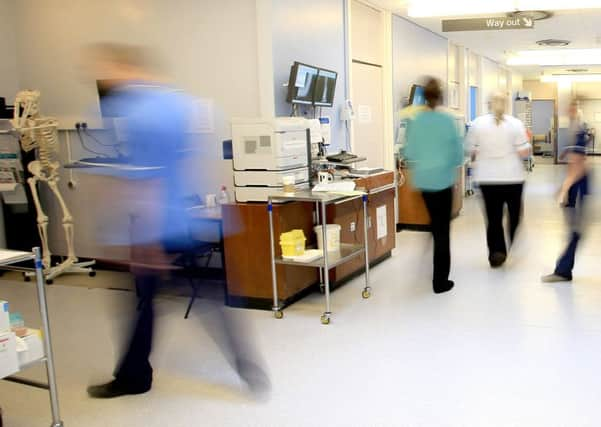Costly CQC inspections ‘not leading to care improvements’ claims University of York study


A study by the University of York has questioned the effectiveness of lengthy visits from the Care Quality Commission (CQC) which can cost NHS trusts up to £420,000 a time.
It found that the inspections place an extra burden on hospital staff but were not linked to improvements in rates of falls resulting in harm to patients or pressure ulcers.
Advertisement
Hide AdAdvertisement
Hide AdDr Ana Cristina Castro, from the University of York’s Department of Health Sciences, and lead author of the study, said: “Since 2013, CQC inspection teams regularly visit NHS trusts over several days, with more than 150 inspection measures, and rate them against legally enforceable standards of care.
“This creates a significant pressure on staff before and during the inspection period, and also significant costs, not just of the CQC inspectors but also the NHS staff who are diverted from other activities.
“We calculated that one CQC inspection costs a hospital between £169,000 and £420,000 depending on its size and the preparatory activities performed.
“We suggest that a less resource-intensive approach should be considered so that all staff can focus appropriately on longer-term improvements.”
Advertisement
Hide AdAdvertisement
Hide AdThe research looked at the impact of CQC inspections in 150 NHS trusts in England and compared lengthy inspections with less intensive ones.
The study found that improvements in rates of falls with harm and pressure ulcers were actually slower following CQC inspections.
Trevor Sheldon, Professor of Health Services Research and Policy, said: “The research shows that inspection regimes, like the CQC, need to rethink their approach.
“Health service and government leaders need to focus less on the methods of monitoring and more on promoting and supporting the many efforts that already exist nationally and within trusts to improve quality.”
Advertisement
Hide AdAdvertisement
Hide AdThe CQC rates hospitals on whether they safe, effective, caring, responsive and well-led.
Ratings ranging from outstanding to inadequate are published online.
The Care Quality Commission defended its inspection regime, saying that studying rates of falls and pressure ulcers in isolation resulted in an “over-simplistic view” of hospital safety.
A CQC spokesperson said: “It also fails to recognise that increased reporting of such incidents may be a result of an improved risk management and a stronger learning culture.
Advertisement
Hide AdAdvertisement
Hide Ad“We continue to see the positive impact of regulation in driving improvements in care, with many hospitals able to improve their rating on re-inspection. As a result, patients across England are receiving better and safer care.”